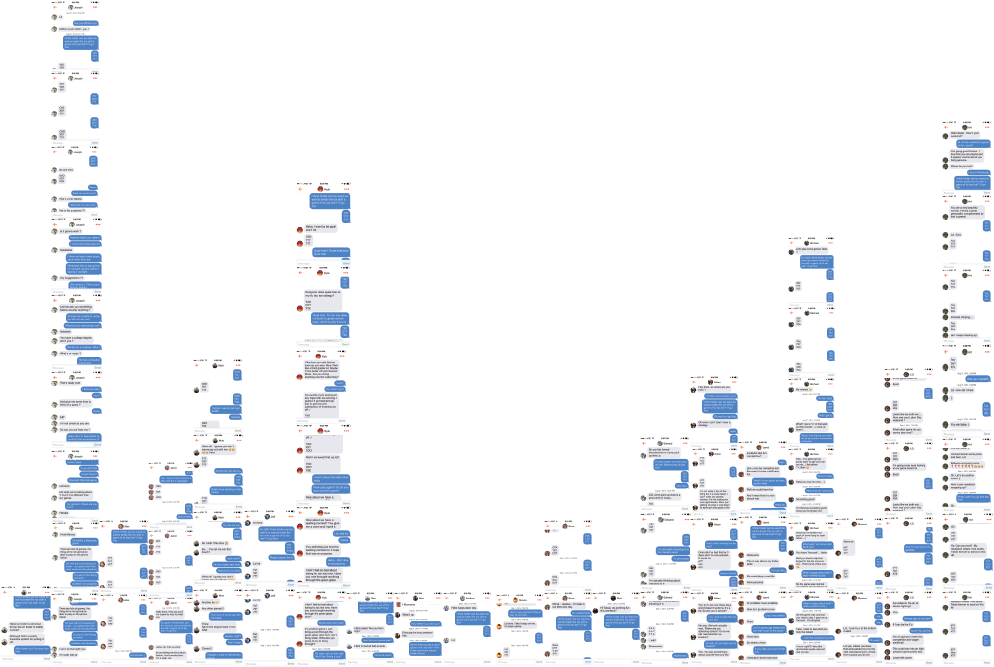
Tinder Tac Toe is fairly simple. I created a Tinder account and asked people to play tic tac toe with me. A bit about Tinder: it’s a photo based meet-up app that shows pictures of people, their age, their gender, and their first name. It has a system to “like” or “nope” people with the swipe of a finger. Users can either make their decision based solely on the first picture or investigate a user’s profile to see other photos or slightly more detailed information. In order to talk to someone through the app, you must both “like” each other. Once two people have “liked” each other, they receive an invitation to begin a conversation. Because of this system, Tinder tends to be a “numbers game”, where people like everyone in order to maximize the amount of people they can. Playing off this principle, I decided that I would like everyone and wait for people to contact me.
I decided to use the same line with everyone once they greeted me. I made sure to not just jump right into the game and acknowledge their greeting first. The greeting I used was “I think tinder can be weird to wanna break the ice with a game of tic tac toe? I’ll go first”. Then I sent a 3×3 grid of question marks and placed my first x somewhere. If it seemed too unnatural to use my scripted prompt, I just asked them in an organic way if they wanted to play tic tac toe.
Surprisingly, most people played along! Some people just laughed or asked if I was serious, but most people figured out how to play along. Usually when the game was over one of three things happened: the person wanted to play again or play another game, the conversation ended, or the person felt like I owed them something. There were never more than 2 games of tic tac toe in any conversation; however, I did have some people suggest some interesting games for us to continue gameplay. A few people suggested trivia and one person suggested a riddle game. These people rarely began flirting, it was almost as if by making Tinder a game platform it had lost it’s flirtation purpose. The people who simply ended the conversation may have come to a similar conclusion.
The most interesting conversations happened where the flirtation continued during and after the game. I often found I had to “play” tinder in order to get people to agree or continue to play tic tac toe. These people were also often disappointed (or indignant!) when I didn’t want to meet them or continue talking to them outside of playing games on Tinder.
Overall, I was pleasantly surprised by how many people were game to play along with me. I was also surprised that it seemed to get people out of “tinder” mindset and into a more playful mindset. I used tinder when I was single (unsuccessfully) as a way to meet people and conversations often got…lewd. I only had one encounter (it’s documented in the photo!) where someone asked me something inappropriate. I think that playing a childhood game brought people out of a tinder mindset and into a more genuine atmosphere to just interact on a platonic level.
